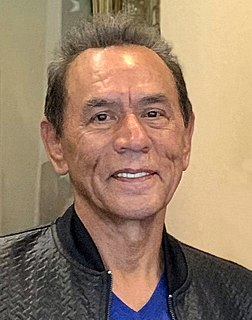Top 28 Quotes & Sayings by Wes Studi
Explore popular quotes and sayings by an American actor Wes Studi.
Last updated on April 14, 2025.
We, as Indian tribes, should be able to prosecute non-Indians on tribal lands. But on Indian land, we have no ability to prosecute anyone but another Indian. American Indians having status as a foreign nation is good for us, but it's not good in some ways if we don't have the jurisdictional power that the federal government claims.




















